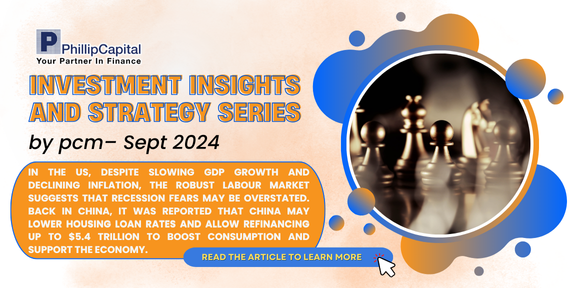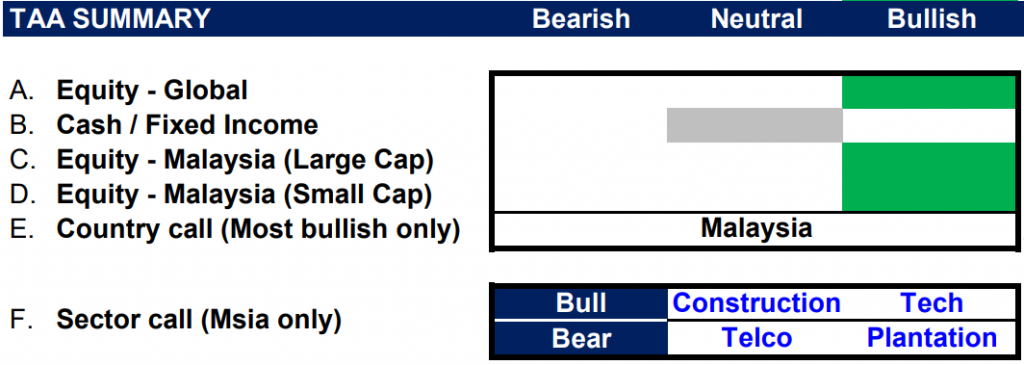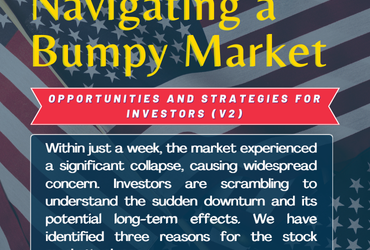
The MSCI Asia Pacific Ex-Japan Index (+2.1%) lagged the MSCI World Index (+2.5%) mom in August, owing to significant market declines over the month in key Asian economies. Indonesia (+5.7%) and Philippines (+4.2%) were the region’s strongest performers, finally breaking away from a year-to-date slump as the rupiah and peso strengthened against the USD by as much as 5% mom, likely indicating investors rushing to buy lagging emerging markets in anticipation of a US Fed rate cut. Hong Kong (+3.7%) came in 3rd, recovering from a 2-month back-to-back decline as rate cut hopes likely fuelled a broad market rally. As the world turns to ASEAN emerging markets, China (-3.5%) continues to be the subject of scrutiny upon weak factory activity data and mounting tariffs on its exports by the West. South Korea (-3.5%) also fared poorly as inflated US Tech earnings expectations dragged on the nation’s mainstay E&E names. Japan (-1.2%), on the other hand, staged a remarkable comeback from the August 5 market meltdown, during which the Nikkei dropped by as much as 19% for the month as investors unwound their Yen carry trades following a 25-basis point increase in the policy rate by the Bank of Japan (see Exhibit 1).
Exhibit 1: Market Performance Aug 2024

Source: Bloomberg, PCM, 31 Aug 2024
In the US, despite slowing GDP growth and declining inflation, the robust labour market suggests that recession fears may be overstated. Back in China, it was reported that China may lower housing loan rates and allow refinancing up to $5.4 trillion to boost consumption and support the economy. China had also outlined “20 key steps” to enhance consumption in areas such as catering and hotels, as well as to boost spending in entertainment, tourism, sports, education, and residential services.
Back home, the FBMKLCI gained 3.3% mom in August and closed at 1,678.80. However, the Small Cap Index fell by 10.1%, and the Mid 70 Index decreased by 5.7%. Sector-wise, the top performers were Finance and Plantation, with gains of 8.5% and 1.5% mom, respectively. Laggards were Technology, Construction and Property, declining by -14.9%, -10.6%, and -9.1% mom, respectively. In terms of fund flow, foreign investors stayed net buyers in August, with net buy flows of RM2.5bn, almost double the net buy flows in July of RM1.3bn.
Strategy for the month
In the September FOMC meeting, the Fed reduced its benchmark rate by 0.50 percentage points, bringing it to a range of 4.75%-5.00%. The market is currently anticipating another 50 basis points cut by the end of the year. We will keep an eye on US election developments, as elevated uncertainty leading up to the November election and unexpected campaign events in late 3Q and 4Q could create market volatility, impacting sector positioning and security selection. In the long term, we believe the US market remains strong, supported by the resilience of corporate earnings. Additionally, the deeply discounted valuations in the Chinese market present potential for a mean reversion trade.
Back home, the 2Q24 earnings season largely met expectations. Sector-wise, Technology sector was the main disappointment, grappling with lower-than-anticipated utilization rates, profit margins, and a strong Ringgit. Conversely, the Oil & Gas sector delivered the most positive surprises, while the Banking sector posted better results thanks to higher non-interest income. Other sectors generated good normalised profit growth including Construction, Energy, Healthcare, Real Estate, Transport and Utilities. We remain optimistic about Malaysia, driven by potential U.S. rate cuts, the formalization of the Johor-Singapore Special Economic Zone, and sustained policy execution (National Semiconductor Strategy, petrol subsidy rationalisation).
Overall, we remain cautiously optimistic about the market. While it has gradually recovered, it still has not fully made up for the losses experienced in August. Our preference in order is: Malaysia (policy) > US (earnings resiliency) > Asia Pacific excluding Japan = Emerging Markets (benefiting from rate cuts) > China (valuation).
In Malaysia, we favour large-cap stocks and selected small-cap stocks. Sector-wise, we favour the Construction sector due to project rollouts and data center investments, and the Technology sector as semiconductor stabilization and AI opportunities emerge. We are also optimistic about the Consumer sector from pension hikes, as well as the Finance sector, driven by improvements in both interest and non-interest income. Conversely, we continue to hold our underweight stance in Telco and Plantation sectors (see Exhibit 2).
Exhibit 2: PCM’s monthly strategy snapshot

Source: PCM, 31 Aug 2024
Phillip Capital Malaysia and our offerings
We reaffirm our belief that there are still opportunities in the market, and we maintain a discerning approach in choosing high-quality stocks for our portfolio. However, it is crucial to exercise caution and carefully select investment options to ensure the best risk-adjusted returns. By taking a vigilant and discerning approach, investors can potentially reap the benefits of the current market opportunities while minimising risks.
A noteworthy avenue for investors seeking diversification in their portfolio is through PhillipCapital Malaysia. PhillipCapital Malaysia offers multiple private mandate services managed by professional fund managers. By leveraging PhillipCapital Malaysia’s private mandate services, investors can enhance their resiliency, optimise portfolio performance, and navigate the complexities of the market with confidence.
We also offer both conventional and Shariah-compliant options to cater to the needs of all investors. For Malaysia’s mandates, we like:
- PMART/PMA Dividend Enhanced and/or PMART/PMA Dividend Enhanced ESG
Our PMART Dividend Enhanced and PMA Dividend Enhanced is an income-driven portfolio focused on high dividend-yielding equities. We apply the Dog of the Dow approach, screen and select top market cap stocks to minimise risk and ensure consistent performance. The portfolio is an equal weighting portfolio which reduces concentration risk and provides similar exposure to all clients, both initially and after rebalancing. We offer both conventional and Shariah investment options to cater to the diverse needs of our investors. Click here to learn more. We recently also introduced PMART/PMA Dividend Enhanced ESG Mandate as we remain dedicated to investing in ESG stocks given their stronger valuation and profitability.
- PMART/PMA ESG
Phillip Capital Malaysia offers discretionary portfolio that invests in stocks with high ESG ratings from the F4GBM and F4GBMS Indices, namely PMART and PMA ESG. There are both conventional and Shariah options available. To explore the companies in which both Conventional and Shariah ESG mandates invest, you can refer to the provided link.
- PMART/PMA Blue Chip and Opportunity
Our Blue-Chip portfolios primarily allocate our investments towards companies with large market capitalisations, while the Opportunity portfolios predominantly invest in companies with smaller market capitalisations. We also offer both conventional and Shariah-compliant options to cater to the needs of all investors.
Please click on the link to learn more or email us at cse.my@phillipcapital.com.my if you require any further information.
Disclaimer:
The information contained herein does not constitute an offer, invitation or solicitation to invest in Phillip Capital Management Sdn Bhd (“PCM”). This article has been reviewed and endorsed by the Executive Director (ED) of PCM. This article has not been reviewed by The Securities Commission Malaysia (SC). No part of this document may be circulated or reproduced without prior permission of PCM. This is not a collective investment scheme / unit trust fund. Any investment product or service offered by PCM is not obligations of, deposits in or guaranteed by PCM. Past performance is not necessarily indicative of future returns. Investments are subject to investment risks, including the possible loss of the principal amount invested. Investors should note that the value of the investment may rise as well as decline. If investors are in any doubt about any feature or nature of the investment, they should consult PCM to obtain further information including on the fees and charges involved before investing or seek other professional advice for their specific investment needs or financial situations. Whilst we have taken all reasonable care to ensure that the information contained in this publication is accurate, it does not guarantee the accuracy or completeness of this publication. Any information, opinion and views contained herein are subject to change without notice. We have not given any consideration to and have not made any investigation on your investment objectives, financial situation or your particular needs. Accordingly, no warranty whatsoever is given and no liability whatsoever is accepted for any loss arising whether directly or indirectly as a result of any persons acting on such information and advice.






